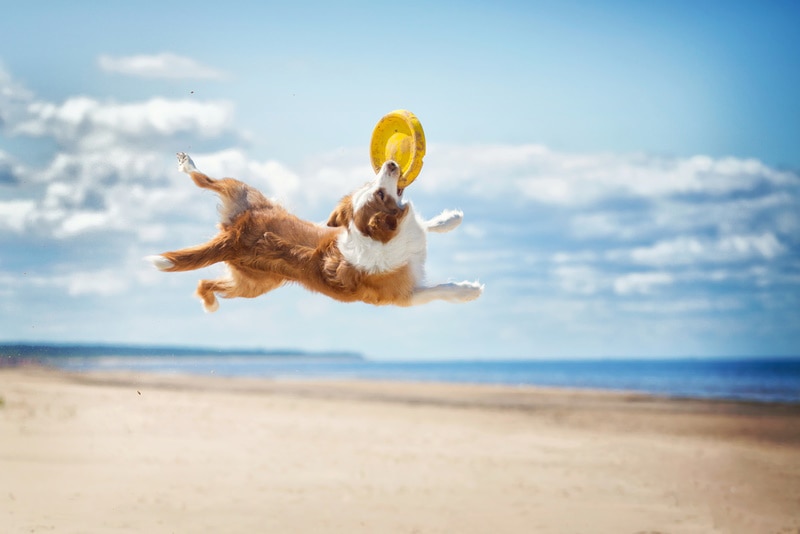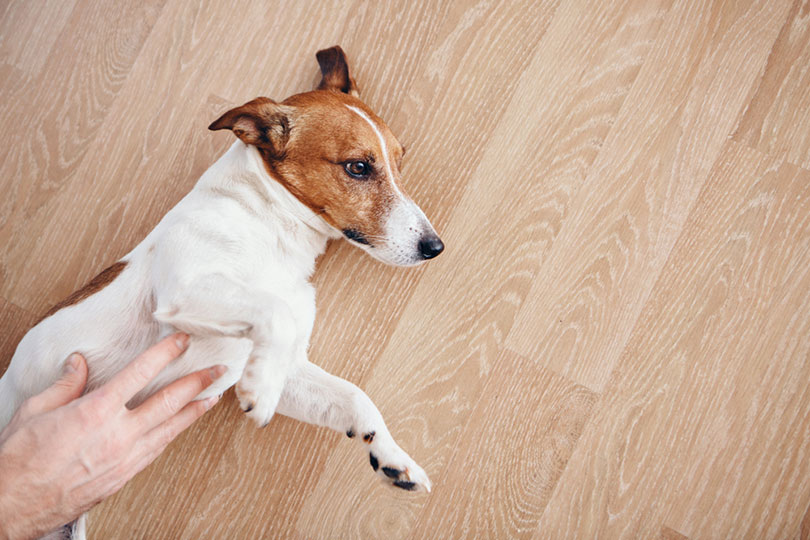How to Become the Alpha Dog With Your Puppy: 15 Helpful Tips
By Grant Piper
Updated on
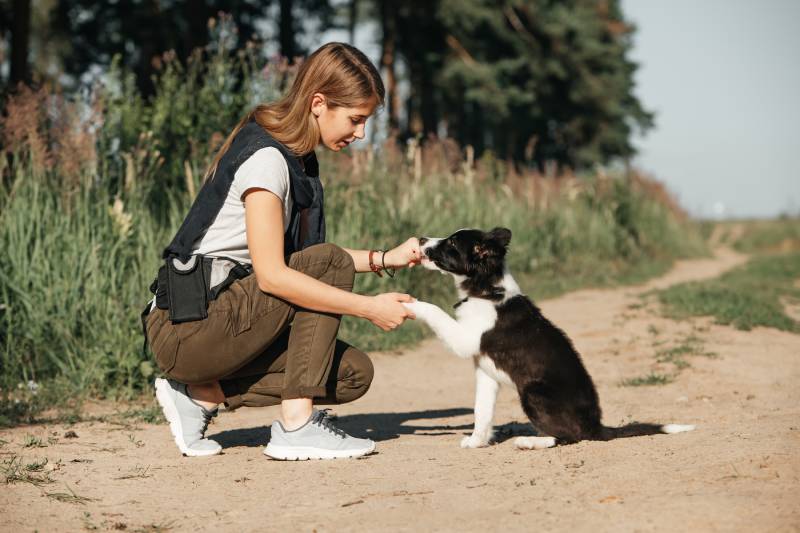
People are always looking for new tips, tricks, and hacks to help them train puppies. Puppies are adorable and exciting, but they can also be frustrating and aggravating. One way to help train a puppy is to make yourself an alpha figure or a parental figure in your dog’s life. This will play on their natural instincts and will foster a strong bond that can last for years to come. Here are 15 tips that will help you become an alpha in your dog’s life.
The 15 Tips on How to Become the Alpha Dog With Your Puppy:
Becoming an alpha to your puppy is a great way to help foster loyalty and obedience. In the wild, dogs look to their pack leader for guidance, food, and direction. Most dogs will be obedient to the leader of the pack and desire to live alongside them and support them. That is the position you want to take in your puppy’s life. Alpha dogs are usually the most direct, the largest, or the most confident. You can make your puppy feel like you are alpha by mimicking the behaviors of alphas, pack leaders, and mother dogs. If you do this when a puppy is young, it will imprint on them and help foster a long-lasting relationship built on trust and natural instincts.
| What You Will Need: |
|
| Time: | A month or more |
| Difficulty: | Moderate |
1. Be Physically Imposing
One of the first things you want to do is to get into the mindset that you want to be imposing to your puppy. That doesn’t mean you have to touch them. In fact, you shouldn’t touch your puppy in an aggressive way. Being imposing simply means showing off your size and strength in relation to your puppy. Standing over your puppy is a good way to make yourself seem physically imposing. Puppies, and dogs in general, are used to one dog being the leader of the pack, and that dog is often the largest and strongest. Your puppy needs to see you as the largest and strongest person in the house in order for you to become the alpha.
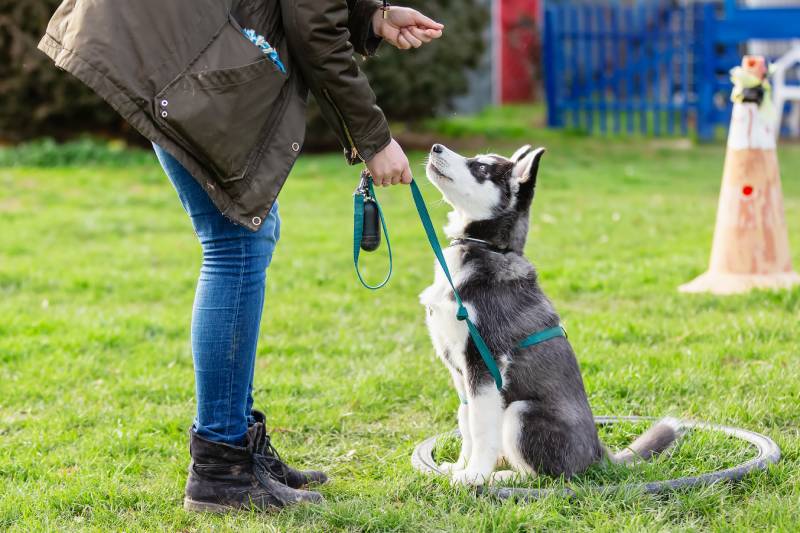
2. Make Eye Contact
Another thing that shows dominance and confidence is by making eye contact. Dogs only make eye contact when they are feeling confident. By making eye contact with your puppy, you will show them that you are in a position of power and authority. When you talk to them, stare into their eyes and don’t look away. You should wait until they look away first. This is an important step to securing your position of dominance over your puppy, which will help them to fall in line and listen to you during training.
3. Be Consistent
Consistency is important when training any dog, especially for puppies. Set firm boundaries and use consistency. Do not waver over the rules. Use the same word when giving commands. Consistency helps puppies learn what is acceptable and what is not. If you are not consistent, then your puppy could get confused, and will learn more slowly. In the wild, an inconsistent pack leader will invite challenges from other prospective alpha dogs.
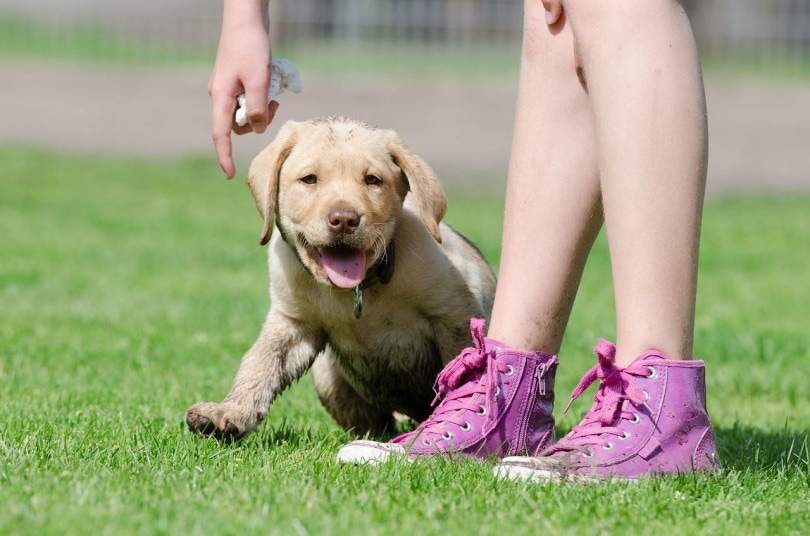
4. Move Your Puppy When Necessary
One part of being an alpha to your puppy is physically moving them. That means moving them out of the way when they are underfoot. It means walking through them when they won’t move on their own. It means picking them up when they aren’t listening and putting them somewhere else (like outside). Moving your puppy shows your dog a few things. First, it shows them that you are strong enough to move them. Second, it shows that you are the one making decisions and enforcing boundaries.
5. Be in Control of the Resources
In the wild, the one who controls the resources is usually the one in charge. The hunter that brings back the best food earns the respect of the pack. Hunting animals, like lions, wolves, and wild dogs, must gather around the one that brings the carcass so that they can eat. Feeding your dog, showing them that you have control over things like food, water, treats, and toys, lets your dog know that you are the hunter that holds the key to all of the resources in the house, which will make them more receptive to training and obedience.
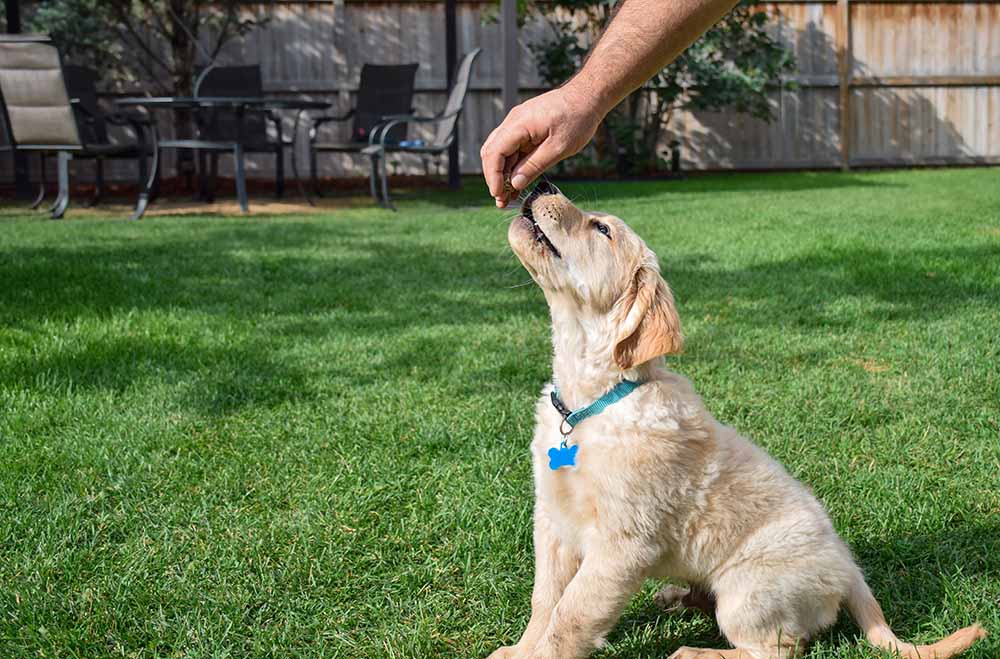
6. Ignore Bad Behaviors
One of the hallmarks of solid canine training is to ignore bad behaviors. Do not punish bad behaviors. Simply ignore them. This is what a mother dog does with her pups. She does not reprimand all of the annoying behaviors that puppies can exhibit, she simply ignores them. That is what you must do as well. Reward and praise good behavior and ignore bad and undesirable behavior.
7. Protect Your Spaces
It is important to set boundaries around spaces where you do not want your dog. These spaces will be different for everyone. Some people do not want their dogs on the couch or in bed. Other people do not want their dogs in the kitchen or in the bathrooms. Enforce your boundaries and keep your puppy away from the areas where they are not permitted. Physically moving your puppy will come in handy during this phase.
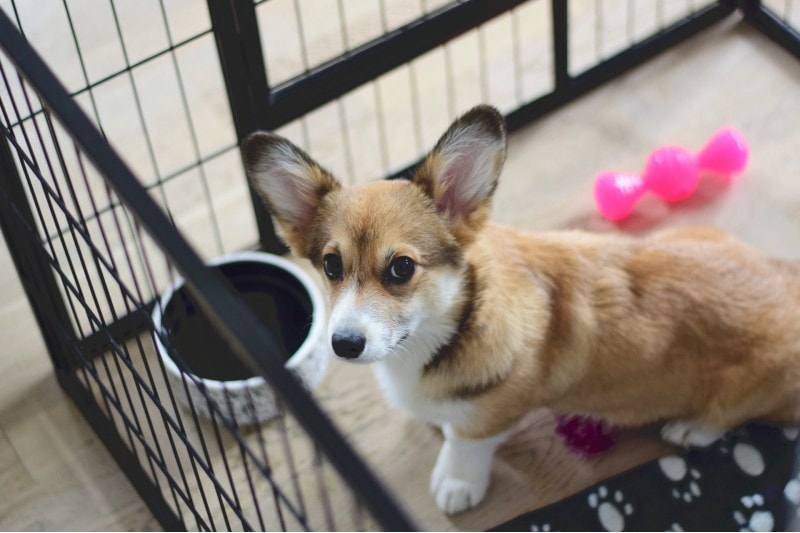
8. Don’t Allow Growling
Do not allow your dog to growl at you or other people in your household. Reprimand them for growling. Show them who is boss when they try to growl. If your puppy starts growling, you need to dig into your toolbelt. Show them who owns the resources, move them away from what they are being protective over, and make direct eye contact when they are growling. Most puppies will back down and realize that growling is not going to intimidate you and that it is unacceptable.
9. Don’t Allow Nipping or Rough Housing
Similar to growling, you should not allow any nipping or roughhousing. That extends to your puppy and other dogs in the house. Puppies like to nip and bite. A mother dog will not allow her puppies to bite her and sometimes will not allow them to bite each other. You should mirror this behavior by preventing them from biting or wrestling. If you stop these behaviors early, they will be much less likely to continue them in the future as they get old. Stopping your puppy from nipping and roughhousing will activate the parts of their brain that associate you with their mother or the pack leader.
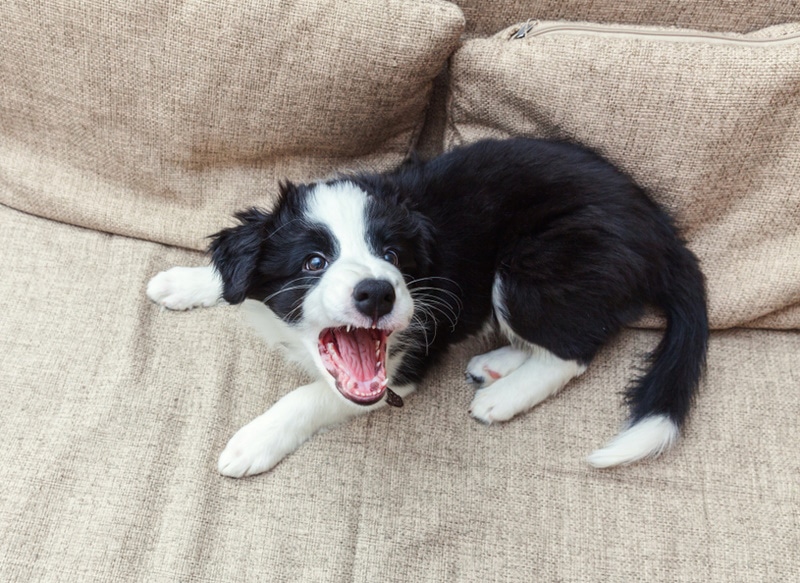
10. Use a Routine
All dogs benefit from a routine, including puppies. Set a routine and stick to it. Enforcing a routine is the type of behavior that a leader exhibits. Take your puppy out to potty at the same time and at regular intervals. Feed them at the same time every day. Take them for walks at the same time as you are able. Keeping to a routine will help your puppy settle in and will help them learn when to eat, when to use the bathroom, and when to sleep.
11. Avoid Inconsistent Behavior
As discussed, being consistent and being steady is imperative when forging a relationship with your puppy. You want to avoid inconsistent and capricious behavior. Do not give in to your emotions. Do not waver from your routine. Do not yell one day and be sweet the next day. You must remain calm and steadfast when training your dog.
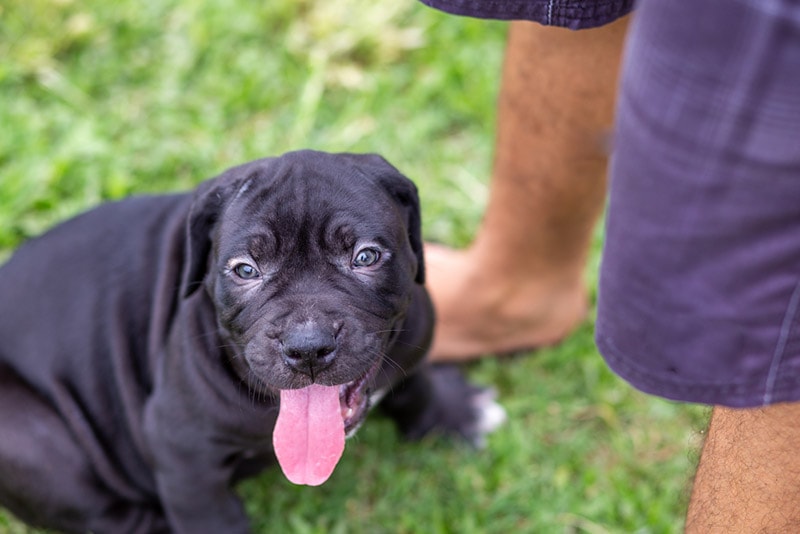
12. Do Not Isolate the Dog
Avoid isolating your puppy as a form of punishment. Some people lock their puppies in their crates or in a spare room. This will not help your puppy adjust, and it will not help them learn. It is better to move them out of the space but keep them in the common areas. Do not punish them with isolation.
13. Try Not to Lose Control
Try not to lose control of your puppy. Puppies can be frustrating and aggravating. You don’t want to yell, scream, or hit your puppy. This goes into the tip of avoiding inconsistent behavior. You need to be calm and steady. If your puppy is driving you to the end of your wits, you should remove yourself from the situation and calm down before returning. Losing control or losing your temper does not help anyone in the situation, especially your puppy.
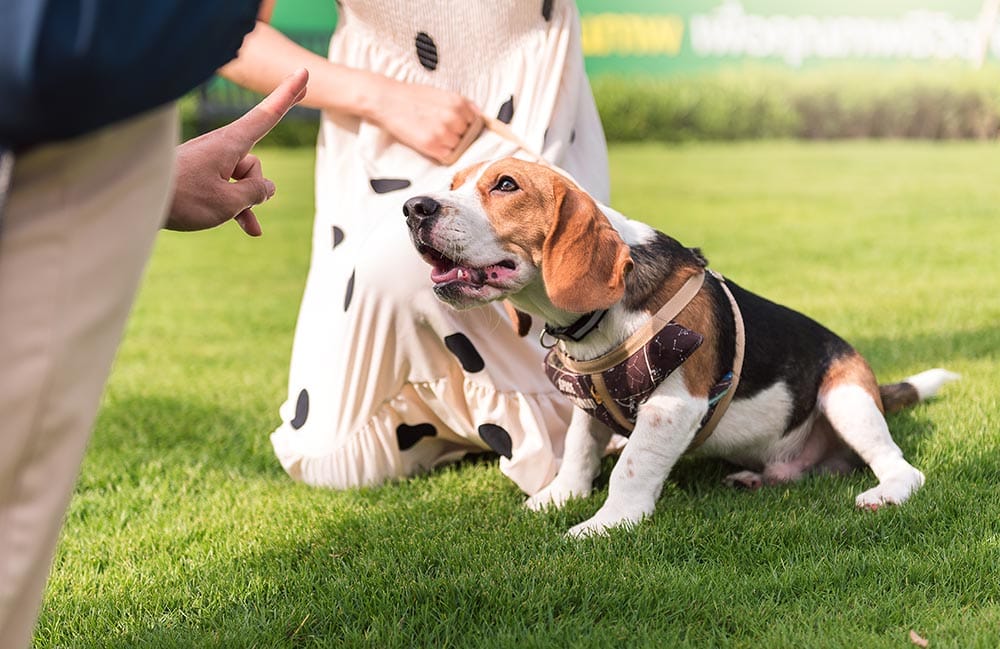
14. Avoid Physical Violence or Aggression
Avoid using any physical violence with your puppy. It is okay to pick up your puppy and move them. It is even okay to give your puppy a tap on the nose to stop biting or growling. But you should not grab your puppy aggressively, and you should absolutely not hit or kick your puppy. That is not alpha behavior. You can be imposing, direct, and confident without ever touching your puppy. You do not need violence and aggression to get your point across.
15. Don’t Treat Your Dog as an Equal or a Leader
On the opposite end of the spectrum, you do not want to be too accommodating or too lenient with your puppy. Some people want to treat their dogs as their equals or even let them lead the way. This can lead to bad behavior and disobedience. Your puppy needs to know that you are the one in charge and that you are the one setting the rules. Do not let your puppy get away with undesirable behaviors. Do not let your puppy break the rules and bite or growl or guard food. Those things will linger into adulthood and can become dangerous behaviors over time, especially if you plan on bringing more pets into the home or have children.
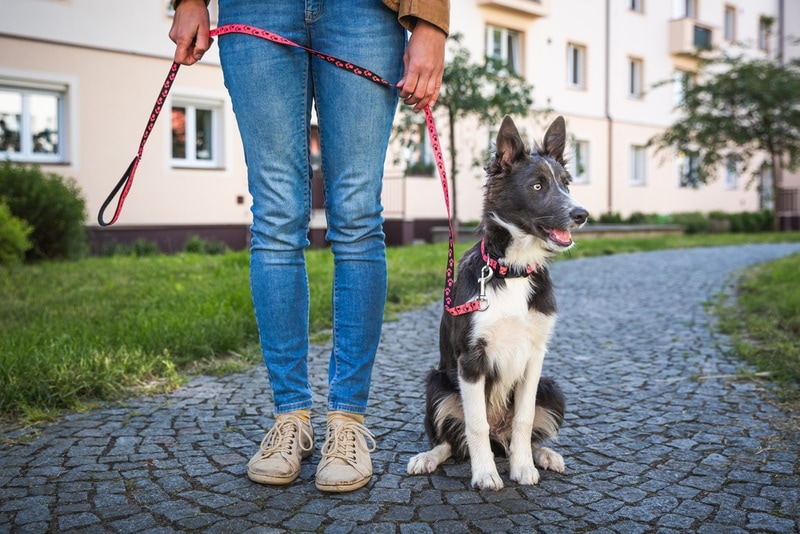
Final Thoughts
These tips will help you become the alpha in your puppy’s life. Being an alpha does not mean shouting or being aggressive, it just means setting boundaries and letting your dog know that you are the one that is in charge. If you impose these behaviors from a young age, your puppy will learn and will not forget as they grow up. Being a steady alpha in your puppy’s life is a great way to make a loving, loyal, and obedient dog.
- Related Read: The 10 Best Dog Training Books
Featured Image Credit: ILya Soldatkin, Shutterstock

